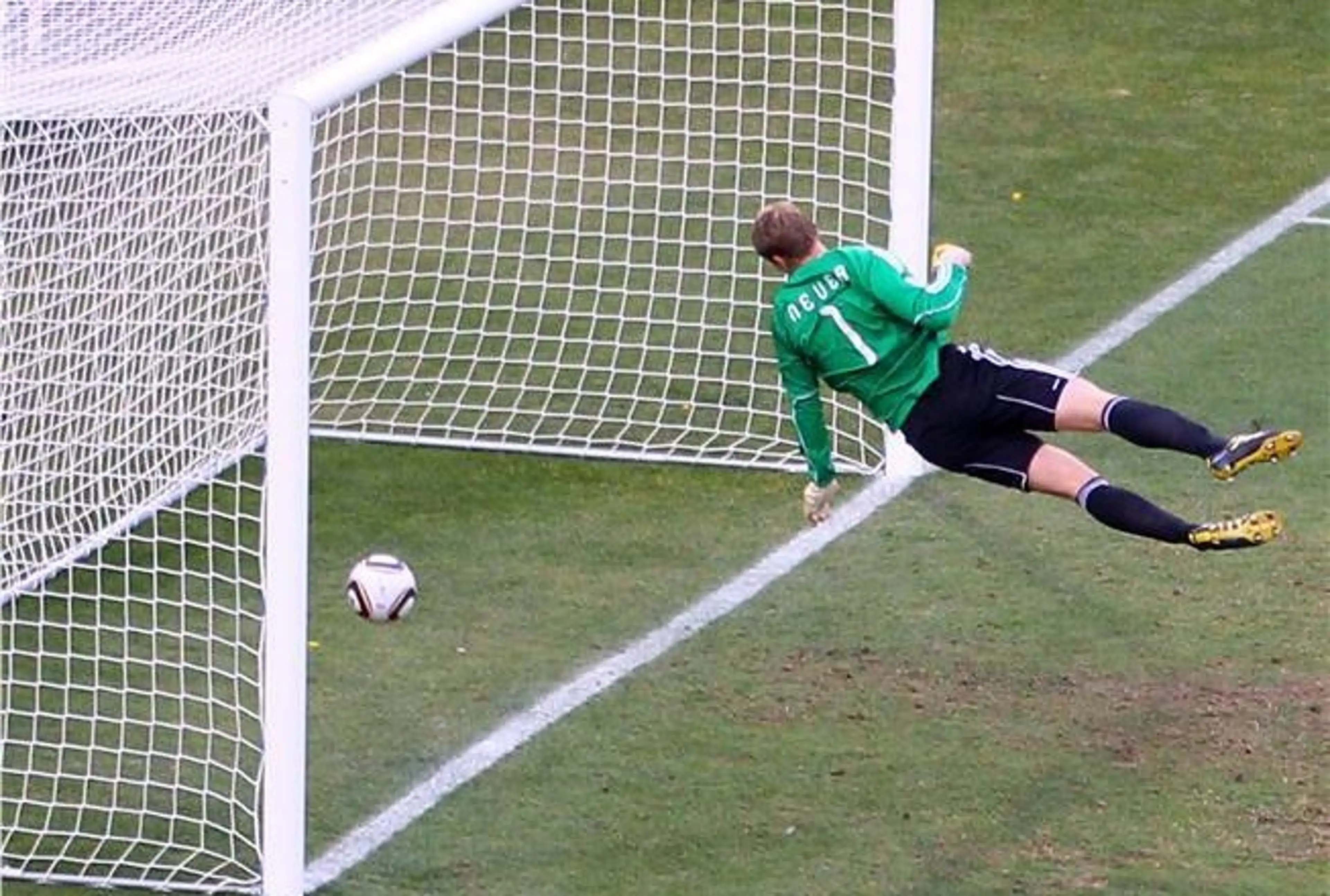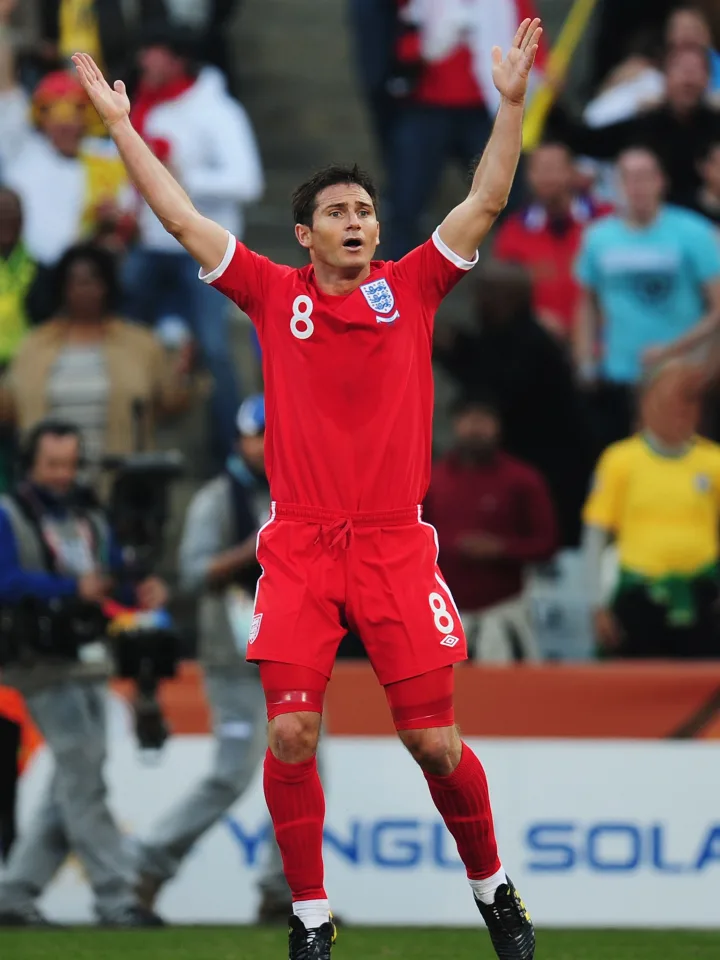The 'Lino': A Dying Craft?
- alfiehayes11
- Apr 24, 2024
- 5 min read
Updated: Apr 25, 2024
In an age where technology is ever expanding its reach over industry, it is no surprise that football is joining the march. We are seeing AI algorithms influence pre-game preparation, inform in-game decision making and even replace weathered scouts in the most extreme cases.
VAR’s turbulent assimilation into the professional game over the past few years personifies this integration. VAR has joined the ranks of an amusingly lengthy cohort of man and machine that assist referees in their decision making. This referee led ensemble includes two assistant referees (linesmen), a fourth official, two additional assistant referees, a reserve assistant referee, a VAR referee, and at least one assistant VAR. A bundle of fun.
What I’m interested in regarding this party is the linesmen. I have always been fairly intrigued by these obscure, chippy figures with the all-important question remaining fresh in my mind: why would someone want to become a linesman? And do we actually need them anymore?
Constant abuse and fan mockery engulf the role with the occasional high-profile blockbuster story habituating the back pages of the papers.
Just ask Sian Massey-Ellis, the female 'lino' who found herself at the centre of controversy in 2011 after her second Premier League game. Esteemed Sky pundits Andy Gray and Richard Keys enjoyed a very much on-air rant about the farcical nature of a female linesman. ‘The games gone mad’ and ‘can you believe that? A female linesman’ were among the incessant comments made by the idiotic duo as they flexed their true colours. Emblematic of the misogynistic underbelly that often accompanies football, it was Sian who ultimately suffered. She was repeatedly withdrawn from subsequent matches by the PGMOL for fear of further reprisals.

Sian Massey-Ellis- the English match official who found herself at the centre of misogynistic remarks made by Andy Gray and Richard Keys. They were sacked shortly after.
Putting all this to one side, what I can’t understand is why there is still a need for assistant referees when VAR is alive and kicking. Linesmen, under IFAB’s (International Football Association Board) regulations, are there to “assist the referee in accordance with the Laws of the Game.” Without boring you too much, this essentially comes down to checking whether the whole ball leaves the pitch, monitoring offsides, passing on sub-requests to the referee and assisting with penalties. Additionally, among other more curious responsibilities, if the referee ever finds themself incapacitated then it comes down to the assistant referees to supervise. Although as far as I know this has never happened, I'm sure their day will come. Patience.
It seems to me as if VAR and goal line technology (GLT), assisted with other camera angles, can make these decisions. In fact, for the most part, they do, as a scrupulous third-party there to corroborate referee’s decisions after they’ve already been made. Almost every decision referees make nowadays is checked by VAR who, largely, get decisions right. It begs the question, what is the point of having these extra legislators at all.
This is not to say that VAR is consistently correct in all its decision making as this is certainly not the case either. Darren England saw to that earlier this season. Dis-jointed communication resulted in the confused Mr. England failing to intervene with the referees wrong, on-pitch decision arguably costing Liverpool the game.
Stuart Attwell’s dismissal of multiple penalty incidents as a VAR on the weekend saw Nottingham Forest miss out on three rather convincing penalty shouts. Misguided by malevolence or not, Attwell once again highlighted the shoddy nature of football adjudication. The stunning backlash poor decisions like these have is exacerbated when seemingly infallible technology is consulted, and rightly so.

Stuart Attwell- the VAR who presided over Everton vs Nottingham Forest last weekend. Multiple convincing penalty shouts were not awarded to NFFC, despite VAR review.

NFFC's X account hinted towards Attwell's well-known support for Luton Town FC post game (NFFC's immediate Premier League relegation rivals)
However, although exampling that human error is still a component within VAR, which seems ludicrous in itself, these mistakes are infrequent, especially when compared to the days of old when it was solely referees and linesmen who ran the shop, often getting decisions wrong without room for an external review.
'That Lampard goal' in the 2010 World Cup. No GLT meant England were knocked out as the referee's on-pitch decision of 'no goal' stood.
Moreover, in instances where VAR is consulted, assistant referees’ impetus is futile. These decisions are above their proverbial pay grade; they do not get involved in the craic with regards to these situations. So why have them at all.
Don’t get me wrong, I would be sad to see these unwavering professionals depart from the game. There is something intrinsically good natured and impartial about them.
It is also important to mention, in areas of football where video technology has little or no reign, yes that includes La Liga, linesmen are more important than ever. The hawk-like precision of their calls is a sight to be marvelled with centimetres often being the difference between decisions. When a close call like this is right, which is abnormally common, it’s an impressive sight indeed.
In the realm of clumsy grassroots, non-league football linesmen are equally as important, however, for slightly different reasons. Comprised of a lost game of rock-paper-scissors and a sweaty bib, these conscripted linesmen are not expected to make calls based off pin-point accuracy and an encyclopaedic knowledge of the rule book.
No-one expects the biased substitute turned linesman to make a controversial call that may well affect the outcome of their own team’s performance. Instead, they are there to assist the referee in basic calls and point trivial things out that the referee may not have seen.
Most importantly, however, I think these linesmen signify a sense of validity that Sunday-league games otherwise miss out on. An increased air of authority mitigates the incompetence and un-professionalism that surrounds the amateur game. Their importance should not be understated.
I think it’s safe to say that the vast majority of linesmen remain safe in their jobs for now. Having a few extra pair of eyes certainly does no harm when cameras cannot be consulted.
For those strange souls who embody the role at the professional level where technologies grip is ever tightening, however, I’m not so sure. Over the years to come we will most certainly see an even heavier reliance on goal line cameras, hawk-eye technology and VAR, pushing out the need for on-pitch (sort of) assistant referees.
It seems their role in topflight football may well be reduced to a role of pageantry in the coming years with a full departure from the game a likely eventuality. If I were a betting man, which I sadly am, it is probably a bet worth placing.
Increasingly symbols of authority rather than out and out decision makers, the precarious story of the linesmen represents the wider discourse surrounding technological advances in most fields. Human intuition is slowly becoming overrun by less error prone, mechanical means. Exciting as this is, where does it leave the linos?





Comments